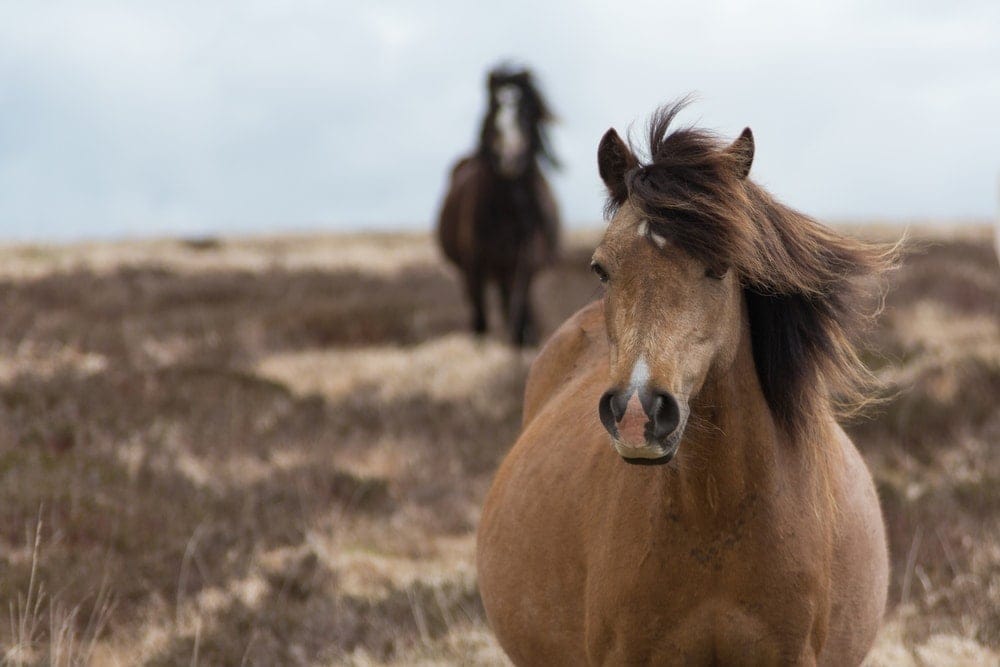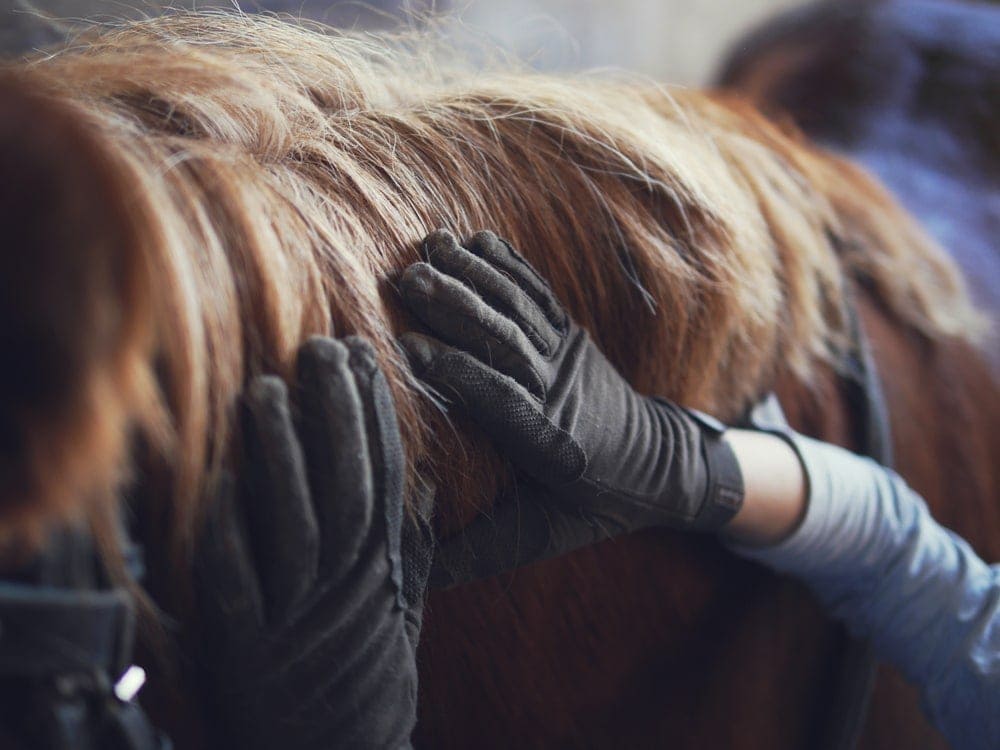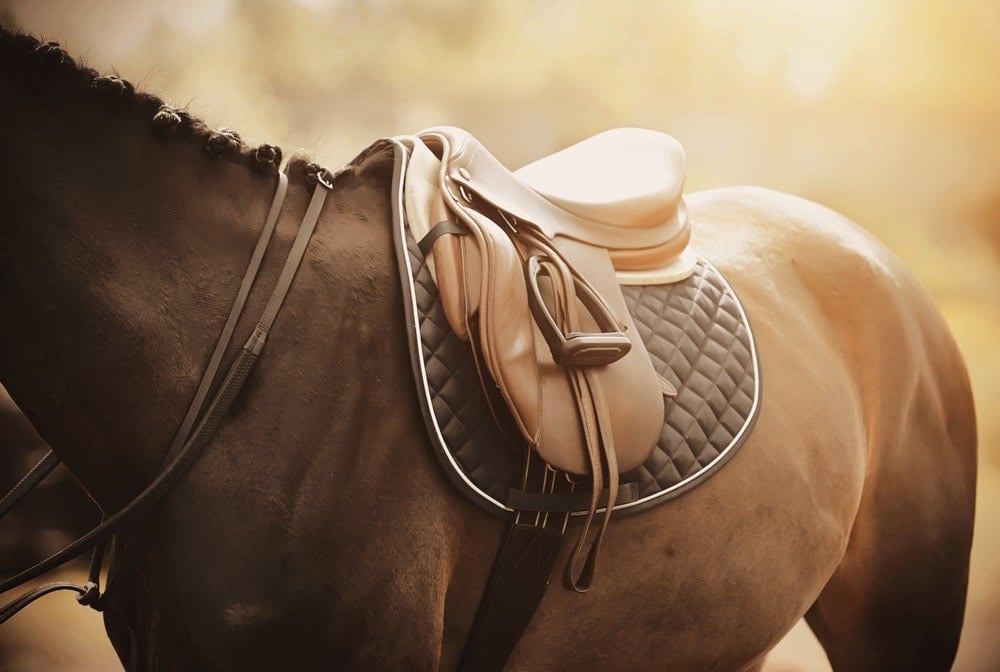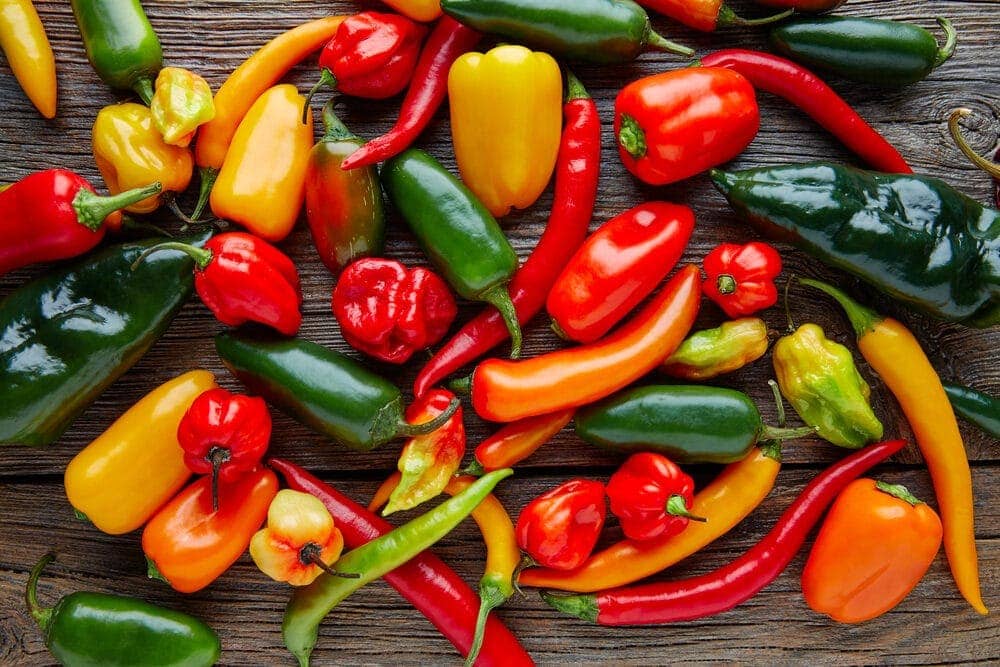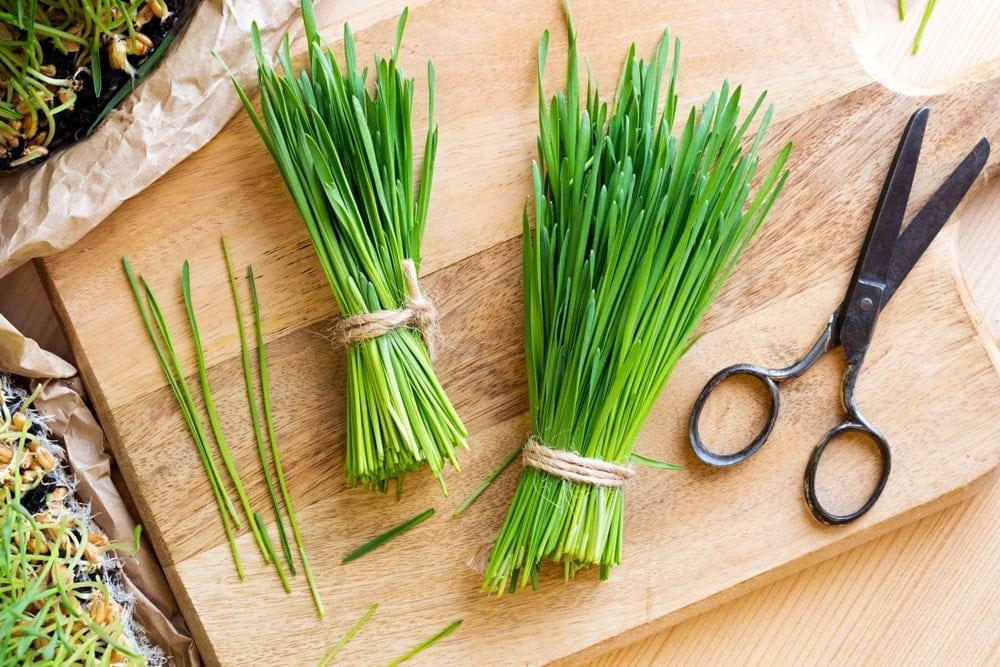You have bred your mares and now you want to know if they are pregnant. How do you do that?
If they are pregnant, when will they give birth? Is there a pregnancy kit you can use or does a veterinarian need to do a test?
How To Tell If a Horse Is Pregnant
It is not obvious in the first three months to tell if a horse is pregnant. Some horse owners think that if a mare does not have a heat cycle she is pregnant, but that is not always true. Some mares will appear to have a heat cycle even if they are pregnant. In the fall and winter months, some may not show an obvious heat cycle.
Simply by looking at a horse, it is impossible to determine they are pregnant early in the pregnancy. Some that have never carried a foal may not show at all while others have a well-spring barrel. It makes it look like they are in foal all the time. This usually happens if they have a hay belly or had several foals.
Some horses may have milk flowing down their back legs for weeks before they foal but others may not. One way to be sure they are in foal and that the pregnancy is a healthy one is to have them examined by a veterinarian that specializes in equine reproduction.
The examination should be done 14-18 days after they were bred. At this time, the veterinarian can also determine if the mare is carrying twins. This type of pregnancy is a major cause of re-absorption and spontaneous abortions. If your horse is carrying twins, the veterinarian can pinch off one of the embryos to give the other one a better chance for development normally. This may sound bad but the chance of the horse producing successfully strong twins is slim.
Once you know that your horse is pregnant, she should be checked again at about forty days. This is to be sure that she is still pregnant and there is no uterine infection.
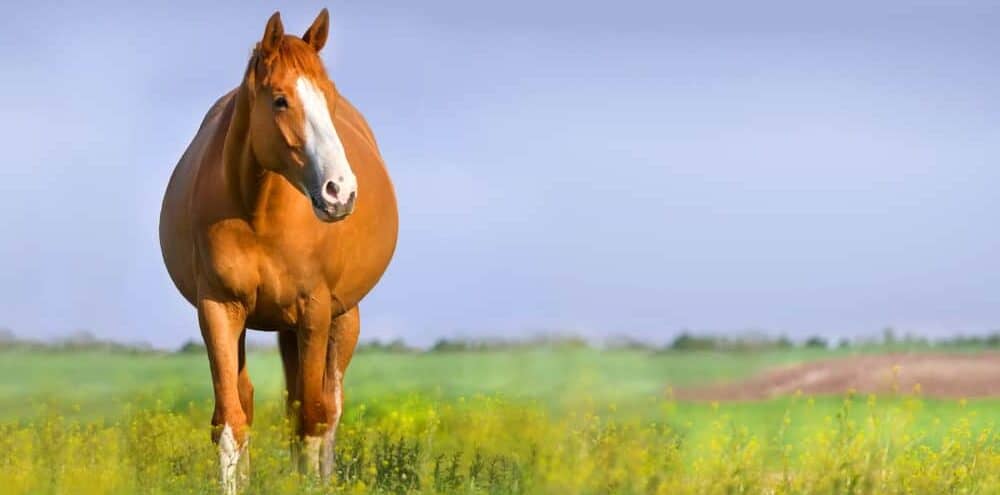
Feeding and Management
When your mare is pregnant, the feeding and management of their care may need to slightly change. You have to make sure that she is getting the best-quality pasture or hay, minerals, and salt. You may want to let your horse graze in another pasture if the pasture she is currently using contains fescues. Fescues are infected with a fungus that produces chemicals called ergoline alkaloids that can result in reproductive dysfunction.
It can cause stillbirth or abortion, premature separation of the placenta, decreased or absent milk production, birthing difficulties, prolonged gestation, etc. The fescue is useful forage for horses that are not pregnant.
If there are horse bullies or dominant horses in the pasture, you should move her to another pasture so she is not injured and making foaling more difficult. For the first three months of her pregnancy, she should not be regular have vaccinations or de-wormed because some of the parasite control medications and vaccines can interfere with the development of the fetus.
Sometimes your horse’s diet will need to be readjusted. When it is time for her to foal, you need to make sure that she is kept away from the other horses. She needs to have a big comfortable bedded area. You should also contact the veterinarian. Most horses will have their foals naturally without any problems but you need to be prepared.
Why Is It Important To Know If Your Horse Is Pregnant
You must know when your horse is pregnant so that you can take care of the horse properly from the beginning for the health of the horse and unborn foal. Some people feel that for thousands of years, horses have been having foals on their own with no problem so why start worrying now. Unfortunately, this does not always lead to the best outcome for the horse or foal.
With proper care early in the pregnancy, an owner can spot any potential problems that could affect the life and health of your foal and horse. You can also spot potential health problems that could affect the reproductive health of your horse. You will know if things are progressing as it should be or if there are signs that the horse may about the foal.
It is very important that when you have a pregnant mare, you do regular checkups and follow any instructions from your veterinarian.
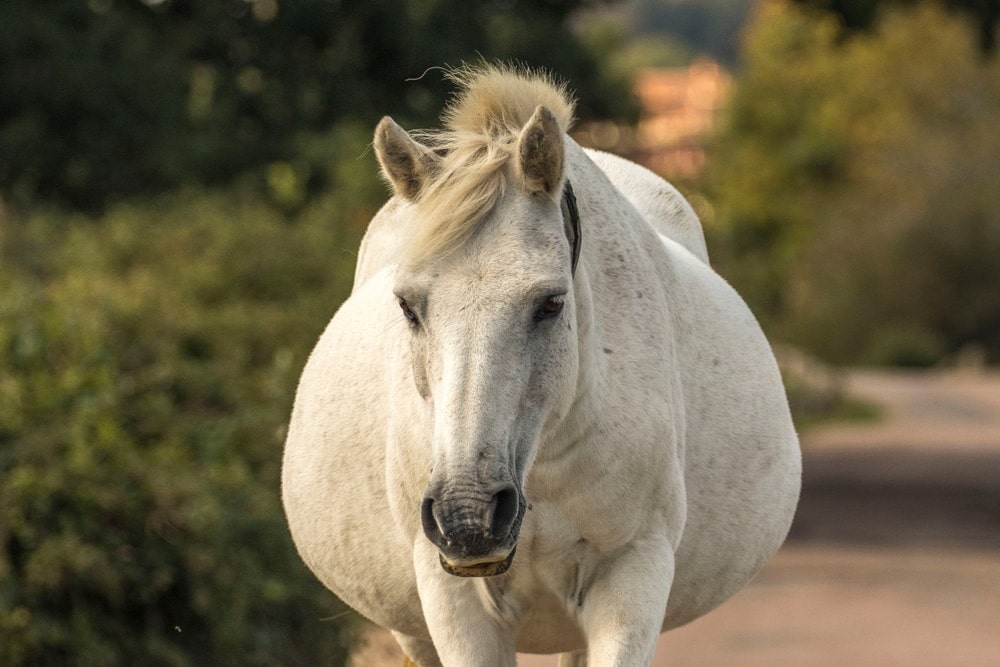
Symptoms Of Pregnancy
- Watch your mare’s behavior around stallions. After 14 days, bring your mare into contact with a stallion to see what her behavior is. The horse will most likely refuse the advance of the stallion if she is possibly pregnant.
Old Folk Methods For Determining Pregnancy
- Holding a ring, nail, or needle tied to a string over the horse’s stomach.
- Watching how the mare shakes. If she just shakes her neck and head but not their entire body. The theory is that by not shaking her body, she is protecting her foal.
Conclusion
- Horses will typically mate in the summer and have a foal in the spring
- You can confirm pregnancy by ultrasound after two weeks and after two to three months with a urine or blood test.
- A mare can only produce one foal each year
- They are capable of producing a foal at 18 months but it is healthier if the mare is at least four years old. This is when mares have has reached her full size.
- Foals can walk and run in a few hours after birth.
- After a few days, they may nibble grass or hay.
- The gestation of a horse’s pregnancy is approximately 11 months.
- There are times that when a mare is in heat, she might accidentally get with a stallion and you want to know if she is pregnant. You can have a veterinarian use an ultrasound to determine if she is or is not pregnant
